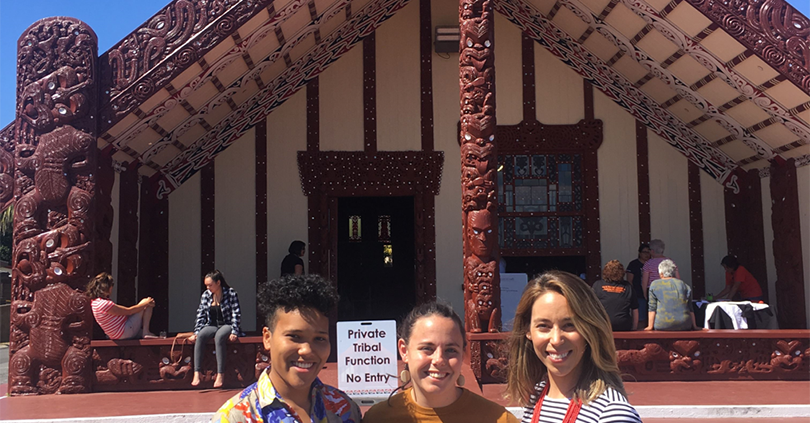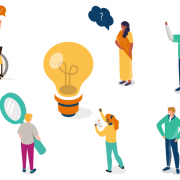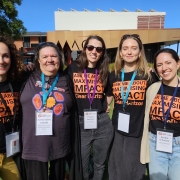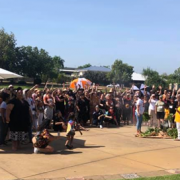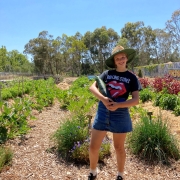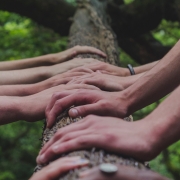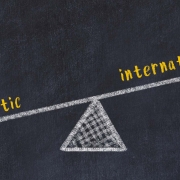Series on Indigenous Evaluation
As part of Clear Horizon’s commitment to supporting Indigenous self-determination, three consultants traveled to Rotorua, New Zealand, to participate in the first Indigenous Peoples’ Conference on Evaluation. To say that we were privileged, humbled, moved and challenged would be an understatement.
We would like to acknowledge with sincere gratitude the hospitality, generosity, wisdom and insight extended to us by the conference organisers from Mā Te Rae, our hosts from the Ohomairangi Marae, the speakers, panelists and presenters as well as the broader community of Indigenous evaluators from around the world with whom we shared the space.
The three days traversed high level ontological reflections regarding traditional knowledge from diverse world views and value systems, down to community-defined indicators for wellbeing and co-authored stories of change. Indigenous evaluators, social change advocates and Maori elders provided insights and raised important questions, prompting both personal and professional reflection and holding significant implications for the field of evaluation and its role in social change. For example: challenging the dominance of western paradigms and the structures perpetuating the exclusion of Indigenous voices; decolonising access to knowledge and ensuring data sovereignty; acknowledging the inter-generational experience of trauma for indigenous peoples; upholding self-determination for communities; and the critical centrality of people and place, relationships and connection, in supporting wellbeing and creating intergenerational change.
This blog marks the beginning of a series, delving into what we took away from the conference:
· Part 2: Connection and community
· Part 3: We are a tree without roots
· Part 4: Self-determination as the defining principle
Ultimately, altruistic intentions are insufficient. In the words of activist Lilla Watson
“If you have come here to help me, you are wasting your time. But if you have come because your liberation is bound up with mine, then let us work together.”
With this intention in mind, we move forward with humility, with curiosity, prepared to listen more and prepared to expose ourselves to situations in which we feel uncomfortable, but that allow us to expand our understanding of the communities, partners and clients we work with, in supporting and striving for meaningful social change.

